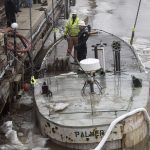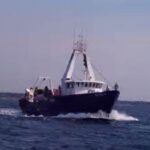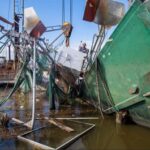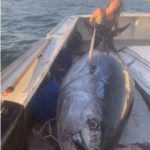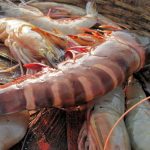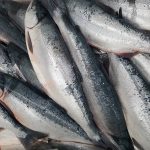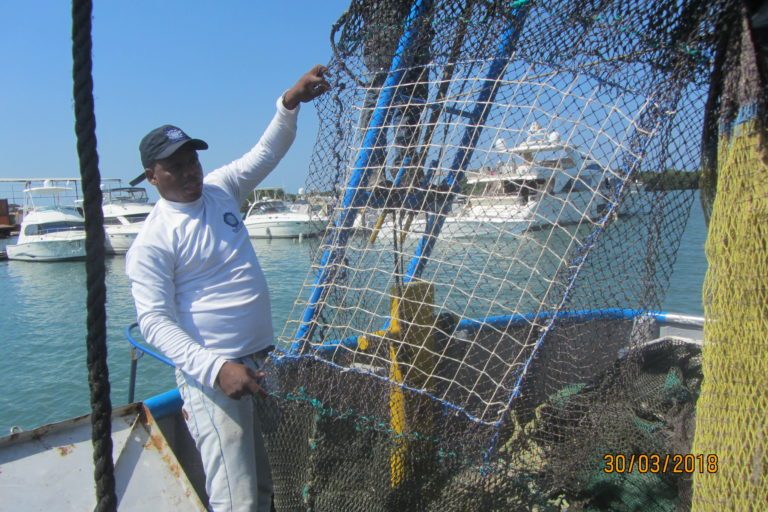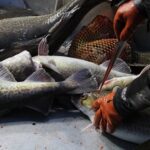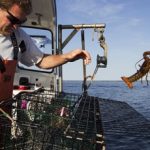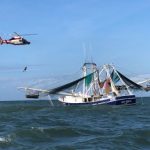Monthly Archives: April 2015
Canadian shrimp imports up as Maine fishery remains closed
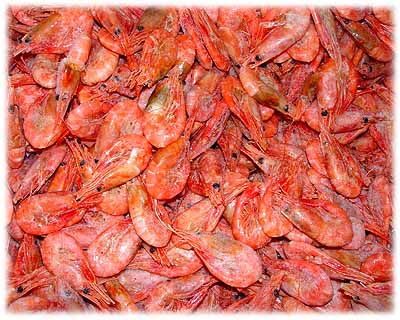 Maine fishmonger Glen Libby made a disheartening discovery on Easter Sunday brunch — the cold water shrimp on the menu at a restaurant up the street from his fish market were from Canada, not New England. Canadian imports of the sweet, quarter-sized crustaceans are turning up more in American restaurants and seafood markets since a ban on fishing for Maine shrimp dried up local sources. Read the rest here 13:16
Maine fishmonger Glen Libby made a disheartening discovery on Easter Sunday brunch — the cold water shrimp on the menu at a restaurant up the street from his fish market were from Canada, not New England. Canadian imports of the sweet, quarter-sized crustaceans are turning up more in American restaurants and seafood markets since a ban on fishing for Maine shrimp dried up local sources. Read the rest here 13:16
Canada’s turn as Arctic Council head to end at Iqaluit meeting; Kerry takes over
 In an interview before handing over leadership of the council to Kerry, Environment Minister Leona Aglukkaq defended Canada’s accomplishments during its two-year termThe American priorities for the Arctic Council are significantly different. The U.S. has said it plans to put climate change at the centre of its two-year term and has outlined a program of measures to protect the Arctic environment, such as developing better ways to deal with marine pollution. The Americans will also start considering the development of a network of marine protected areas. Read the rest here 12:14
In an interview before handing over leadership of the council to Kerry, Environment Minister Leona Aglukkaq defended Canada’s accomplishments during its two-year termThe American priorities for the Arctic Council are significantly different. The U.S. has said it plans to put climate change at the centre of its two-year term and has outlined a program of measures to protect the Arctic environment, such as developing better ways to deal with marine pollution. The Americans will also start considering the development of a network of marine protected areas. Read the rest here 12:14
Rhode Island Fishermen’s Alliance Weekly Update, April 19, 2015
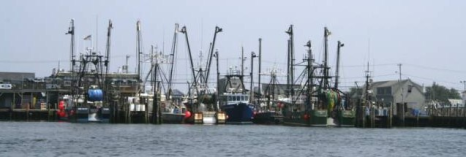 The Rhode Island Fishermen’s Alliance is dedicated to its mission of continuing to help create sustainable fisheries without putting licensed fishermen out of business.” Read the update here To read all the updates, click here 11:47
The Rhode Island Fishermen’s Alliance is dedicated to its mission of continuing to help create sustainable fisheries without putting licensed fishermen out of business.” Read the update here To read all the updates, click here 11:47
Battle of the Bluefin
 I was working as a reporter on Prince Edward Island, having only just moved there from Ontario, a place without fish of such tremendous size. I remember regretting the tuna was dead during our first meeting, hanging by its tail from a crane over the humble harbour at Seacow Pond. These fish, which can grow a frightening three metres in length and weigh 680kg, visit Canadian waters between July and November, taking advantage of our bountiful waters on the Scotian Shelf, in the Gulf of St Lawrence and on the Grand Banks of Newfoundland. photo credit Read the rest here 09:23
I was working as a reporter on Prince Edward Island, having only just moved there from Ontario, a place without fish of such tremendous size. I remember regretting the tuna was dead during our first meeting, hanging by its tail from a crane over the humble harbour at Seacow Pond. These fish, which can grow a frightening three metres in length and weigh 680kg, visit Canadian waters between July and November, taking advantage of our bountiful waters on the Scotian Shelf, in the Gulf of St Lawrence and on the Grand Banks of Newfoundland. photo credit Read the rest here 09:23
Environmental Defense Fund — Fishery vote should protect more habitat
This Thursday, the New England Fishery Management Council will finally vote on the  , the culmination of a multi-year process of creating, eliminating and modifying fishery closed areas in New England’s waters. As is often the case in New England fisheries, this decision has become highly contentious. Many fishermen oppose what they see as added restrictions on their ability to fish. For its part, the council seems intent on retaining the smallest amount of closed area it can get away with,,, Read the rest here 08:27
, the culmination of a multi-year process of creating, eliminating and modifying fishery closed areas in New England’s waters. As is often the case in New England fisheries, this decision has become highly contentious. Many fishermen oppose what they see as added restrictions on their ability to fish. For its part, the council seems intent on retaining the smallest amount of closed area it can get away with,,, Read the rest here 08:27
Peter Anthony, Nordic Fisheries — Size of closures not as important as effectiveness
New England’s historic fisheries are too important to our communities, to our economies and to our cultural heritage to allow special interest politics to stand in the way of substantive progress. Contrary to recent claims by some environmental organizations, the New England Fishery Management Council’s (NEFMC) proposed updates to habitat closures in our region via Omnibus Habitat Amendment 2 (OHA2) will align our commercial fisheries with exponentially improved science that better protects both our industries and our environment. Read the rest here 08:07
South Lafourche oysterman remains resilient
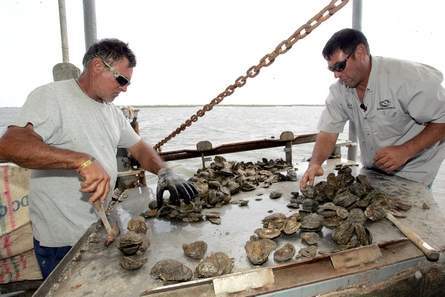 The dictionary definition of resilient is to be “able to withstand or recover quickly from difficult conditions.” That word is thrown around a lot in south Louisiana. Environmentalists refer to the resiliency of plants and wildlife surviving numerous oil spills and hurricanes. Coastal advocates promote projects to make the fast-eroding coast more resilient. Local governments create master resiliency plans as to make their parishes more sustainable. Then there’s Nick Collins and the Collins Oyster Co. that embody resiliency. Read the rest here 07:42
The dictionary definition of resilient is to be “able to withstand or recover quickly from difficult conditions.” That word is thrown around a lot in south Louisiana. Environmentalists refer to the resiliency of plants and wildlife surviving numerous oil spills and hurricanes. Coastal advocates promote projects to make the fast-eroding coast more resilient. Local governments create master resiliency plans as to make their parishes more sustainable. Then there’s Nick Collins and the Collins Oyster Co. that embody resiliency. Read the rest here 07:42
Mid-Atlantic Council Initiates Action to Manage Blueline Tilefish
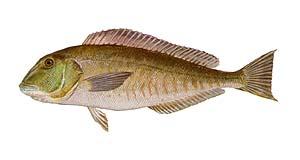
Trident’s new fishmeal plant to go online soon in Naknek
The newest processing plant in Bristol Bay is about to go online this month. Trident Seafood’s multi-million dollar fishmeal plant should get a test run with Togiak herring. Trident agreed to build the plant as part of a 2011 settlement over alleged EPA Clean Water Act violations, and now the company, and residents, should get to see (and smell) it if works as intended. As they’re putting the finishing touches on the new plant, Trident offered KDLG’s Matt Martin in inside plant tour, and he has this report. Audio, Read the rest here 13:04
Coast Guard rescues disabled fishing vessel 115 miles east of Glouceser
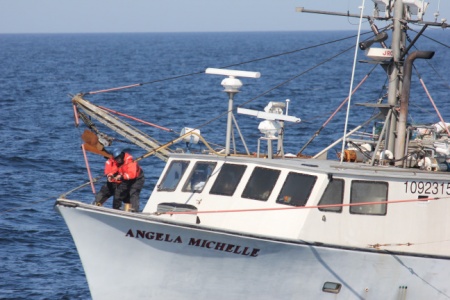 Rescue crews from the Coast Guard Cutter Legare are towing the 61-foot fishing vessel Angela Michelle to land today after their anchor line became wrapped around their rudder and propeller about 115 miles east of Gloucester, Massachusetts. Read the rest here 12:30
Rescue crews from the Coast Guard Cutter Legare are towing the 61-foot fishing vessel Angela Michelle to land today after their anchor line became wrapped around their rudder and propeller about 115 miles east of Gloucester, Massachusetts. Read the rest here 12:30
Florida Fish and Wildlife Conservation Commission eases lobster dive regulations
 Things are about to get easier for commercial lobster divers looking to expand or sell their business. New Florida Fish and Wildlife Conservation Commission rules set to go into effect July 1 will allow commercial lobster divers to sell their licenses to people other than immediate family members, which is currently prohibited. Bill Kelly, executive director of the Florida Keys Commercial Fishermen’s Association, said the rule changes are a welcome way to promote fairness across the fishery. Read the rest here 11:50
Things are about to get easier for commercial lobster divers looking to expand or sell their business. New Florida Fish and Wildlife Conservation Commission rules set to go into effect July 1 will allow commercial lobster divers to sell their licenses to people other than immediate family members, which is currently prohibited. Bill Kelly, executive director of the Florida Keys Commercial Fishermen’s Association, said the rule changes are a welcome way to promote fairness across the fishery. Read the rest here 11:50
California’s bluefin tuna drowning in a sea of politics
 California should shut down its Pacific bluefin tuna fishery. That’s something conservationists have been demanding for years, citing evidence of severe overfishing,,, federal rules and interagency politics are getting in the way of smart fishery management. “I don’t think we have any choice but to adopt our rules in conformance with what the federal council recommended,” Sutton said of the recommendation from the Pacific Fisheries Management Council, the industry-dominated (?) regional advisory body,,, Read the rest here 10:36
California should shut down its Pacific bluefin tuna fishery. That’s something conservationists have been demanding for years, citing evidence of severe overfishing,,, federal rules and interagency politics are getting in the way of smart fishery management. “I don’t think we have any choice but to adopt our rules in conformance with what the federal council recommended,” Sutton said of the recommendation from the Pacific Fisheries Management Council, the industry-dominated (?) regional advisory body,,, Read the rest here 10:36
CLIMATE, POLLUTION, AND OVERFISHING
 It seems that at least every 5 years I’ve got to return to the dispute of overfishing vs. other factors responsible for depleted fish populations. I surely wrote about it on this page in 2002, 2007 and 2012. Now, with a feeling of déjà vu, I’m back at it.,, The trigger was a letter sent to me by my friend Cormac Burke in which a British Fisherman Skipper (ret) M W Jackson wrote to Fishing News. Mr. Jackson was complaining of the lack of judgment in which the general press distributed misinformation by conservationists who are self proclaimed experts,,, Read the rest here 09:17
It seems that at least every 5 years I’ve got to return to the dispute of overfishing vs. other factors responsible for depleted fish populations. I surely wrote about it on this page in 2002, 2007 and 2012. Now, with a feeling of déjà vu, I’m back at it.,, The trigger was a letter sent to me by my friend Cormac Burke in which a British Fisherman Skipper (ret) M W Jackson wrote to Fishing News. Mr. Jackson was complaining of the lack of judgment in which the general press distributed misinformation by conservationists who are self proclaimed experts,,, Read the rest here 09:17
Maritime seafood processors fear worker shortage will hurt market, won’t have the capacity to process all that is caught
 Seafood processors in northern Nova Scotia, New Brunswick and Prince Edward Island are feeling the pinch of growing labour shortages just as the spring lobster season sets to open in the Northumberland Strait and southern Gulf of St. Lawrence. Fish plants have increasingly relied on temporary foreign workers to fill those gaps, but new rules announced by Ottawa last year are curtailing the number allowed. Read the rest here 08:25
Seafood processors in northern Nova Scotia, New Brunswick and Prince Edward Island are feeling the pinch of growing labour shortages just as the spring lobster season sets to open in the Northumberland Strait and southern Gulf of St. Lawrence. Fish plants have increasingly relied on temporary foreign workers to fill those gaps, but new rules announced by Ottawa last year are curtailing the number allowed. Read the rest here 08:25
Scallop Sparks flying in advance of New England Fishery Management Council meeting
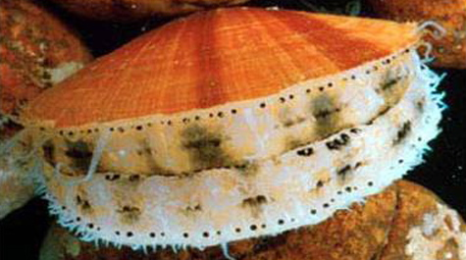 The scallop industry is on high alert over next week’s meeting of the New England Fishery Management Council after a long warning letter was sent to the council by NOAA
The scallop industry is on high alert over next week’s meeting of the New England Fishery Management Council after a long warning letter was sent to the council by NOAA Fisheries Regional Administrator John Bullard. The council’s Habitat Committee has issued recommendations that fishing restrictions be lifted on several areas of Georges Bank, the Gulf of Maine and the South Channel. But Bullard, backed by his agency’s scientific staff, said he believes that the relaxing of the restrictions would set back the effort to nurse fish stocks back to health. Read the rest here 22:03
Russian Fishing Vessel Oleg Naydenov catch’s fire, sink’s off Gran Canaria accused of illegal fishing
 Shortly after the Russian-flagged fishing vessel Oleg Naydenov sank south of Gran Canaria after catching fire, allegations about its involvement in illegal fishing activities and revocation of its catch permits came into light. According to the NGO Greenpeace, this 100 metre-long trawler had the fishing permits in Senegal revoked, as it is a country that had also accused it of overfishing pelagic resources in waters for which it lacked authorization. Read the rest here 20:25
Shortly after the Russian-flagged fishing vessel Oleg Naydenov sank south of Gran Canaria after catching fire, allegations about its involvement in illegal fishing activities and revocation of its catch permits came into light. According to the NGO Greenpeace, this 100 metre-long trawler had the fishing permits in Senegal revoked, as it is a country that had also accused it of overfishing pelagic resources in waters for which it lacked authorization. Read the rest here 20:25
North Carolina Fisheries Association Weekly Update for April 17, 2015
 Weekly Update for April 17, 2015 as a PDF To read all the updates, click here 18:02
Weekly Update for April 17, 2015 as a PDF To read all the updates, click here 18:02
North Carolina: Some commercial fishing license fees jump 60 percent
 The prices of six commercial fishing licenses has increased by 60 percent under a plan approved last year to help pay for the fisheries observer program while also providing funds to enhance the state commercial fishing industry. The new fees represent a 100 percent increase from two years ago under a plan to fund the N.C. Division of Marine Fisheries Observer Program that was proposed by the commercial fishing industry. The plan proposed by the North Carolina Fisheries Association,,, Read the rest here 17:11
The prices of six commercial fishing licenses has increased by 60 percent under a plan approved last year to help pay for the fisheries observer program while also providing funds to enhance the state commercial fishing industry. The new fees represent a 100 percent increase from two years ago under a plan to fund the N.C. Division of Marine Fisheries Observer Program that was proposed by the commercial fishing industry. The plan proposed by the North Carolina Fisheries Association,,, Read the rest here 17:11
Case against East End fisherman Bill Reed, charged with overfishing, thrown out
 A Southampton judge on Friday dismissed a case mid-trial against an East End commercial fisherman charged with overfishing after he returned to port to avoid a storm. The case against Reed fell apart after Matthew Foster, an enforcement officer for the state Department of Environmental Conservation, and DEC official Steve Heins acknowledged on the witness stand that a “safe harbor” provision the agency uses to grant exceptions to its quota rules was “general practice” but never “written policy.” Read the rest here 16:40
A Southampton judge on Friday dismissed a case mid-trial against an East End commercial fisherman charged with overfishing after he returned to port to avoid a storm. The case against Reed fell apart after Matthew Foster, an enforcement officer for the state Department of Environmental Conservation, and DEC official Steve Heins acknowledged on the witness stand that a “safe harbor” provision the agency uses to grant exceptions to its quota rules was “general practice” but never “written policy.” Read the rest here 16:40
$62,500 in fines, fishing prohibitions doled out in Yarmouth County seizure of 6,222 illegal lobsters
 The seizure of lobsters by DFO took place on April 27, 2012, in Comeau’s Hill involving the fishing vessel Melanie Lynn II. In provincial court in Yarmouth on Friday, April 17, Earl Patrick Boudreau, 51, and Dennis Joseph Clairmont, 62, pleaded guilty to possession of undersized lobsters measuring less than 82.5 millimetres. At the time of the 2012 seizure DFO said the lobsters had been stored in about two-dozen holding cases and crates. DFO also doesn’t know for certain where they were destined. Read the rest here 16:28
The seizure of lobsters by DFO took place on April 27, 2012, in Comeau’s Hill involving the fishing vessel Melanie Lynn II. In provincial court in Yarmouth on Friday, April 17, Earl Patrick Boudreau, 51, and Dennis Joseph Clairmont, 62, pleaded guilty to possession of undersized lobsters measuring less than 82.5 millimetres. At the time of the 2012 seizure DFO said the lobsters had been stored in about two-dozen holding cases and crates. DFO also doesn’t know for certain where they were destined. Read the rest here 16:28
Spare fleet readies for Togiak herring season
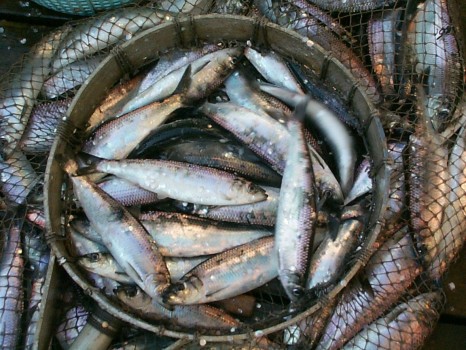 At the quiet Dillingham Boat Harbor Monday, the four-man crew of the F/V Skagerrack was on deck, patching holes in their net and mending a leaky winch. “It’s been 10 years since I seined for herring,” said skipper Paul Friis-Mikkelsen, a longtime veteran of Bristol Bay’s fisheries. He was able to get a market with Silver Bay Seafoods, and will fish as a co-op with just a few other seiners. The dwindling Togiak herring fleet is gloomy about an estimated price of just $50 per ton,,, Read the rest here 15:50
At the quiet Dillingham Boat Harbor Monday, the four-man crew of the F/V Skagerrack was on deck, patching holes in their net and mending a leaky winch. “It’s been 10 years since I seined for herring,” said skipper Paul Friis-Mikkelsen, a longtime veteran of Bristol Bay’s fisheries. He was able to get a market with Silver Bay Seafoods, and will fish as a co-op with just a few other seiners. The dwindling Togiak herring fleet is gloomy about an estimated price of just $50 per ton,,, Read the rest here 15:50
Maine: Slow start to elver season means high price for baby eels
 Maine’s baby eel season is off to a slow start, causing prices to balloon back to historic levels as fishermen wait for waterways to finish thawing. Elvers, also called , are sold overseas as seed stock for Asian aquaculture companies that raise them to maturity and sell them as food. Maine fishermen are by far the largest supplier of elvers in the U.S. Some end up back in America in restaurants as sushi. Read the rest here 14:50
Maine’s baby eel season is off to a slow start, causing prices to balloon back to historic levels as fishermen wait for waterways to finish thawing. Elvers, also called , are sold overseas as seed stock for Asian aquaculture companies that raise them to maturity and sell them as food. Maine fishermen are by far the largest supplier of elvers in the U.S. Some end up back in America in restaurants as sushi. Read the rest here 14:50
Northeast Fisheries Science Center to Step Up Partnerships for Better Fishery Resource Surveys
 “We understand the impacts that poor stock conditions have on local economies and the lives of those involved in the fisheries,” said NOAA
“We understand the impacts that poor stock conditions have on local economies and the lives of those involved in the fisheries,” said NOAA Fisheries’ NEFSC director Bill Karp. “We face many challenges in better understanding the dynamics of all of our regional stocks, especially as we see increasing effects of climate change throughout the region. We cannot meet these challenges alone, so we are strengthening our collaborative relationships with industry, our academic partners, and other stakeholders,” he said. Read the rest here 14:02
North Pacific council cuts Bering Sea salmon bycatch caps
 The most iconic Alaska fish is in puzzling decline, and the mission for both state and federal fisheries managers is to spread the pain as evenly as possible. The cuts of 25 percent and 30 percent for the pollock industry’s performance standard and hard caps struck a middle ground that was too much for one group and not enough for the other. The council’s unanimous decision was to reduce the hard cap from 60,000 to 45,000, and the performance standard from 47,591 to 33,318 in low abundance years. Read he rest here 11:16
The most iconic Alaska fish is in puzzling decline, and the mission for both state and federal fisheries managers is to spread the pain as evenly as possible. The cuts of 25 percent and 30 percent for the pollock industry’s performance standard and hard caps struck a middle ground that was too much for one group and not enough for the other. The council’s unanimous decision was to reduce the hard cap from 60,000 to 45,000, and the performance standard from 47,591 to 33,318 in low abundance years. Read he rest here 11:16
DMR permanently revokes licenses of Swan’s Island fisherman
For the first time ever, a commercial fisherman in Maine has had all his licenses to fish permanently revoked, according to state officials. Citing Lucas Lemoine’s history of violations, Patrick Keliher, commissioner the state Department of Marine Resources, permanently revoked his commercial fishing licenses on Tuesday, department officials indicated in a prepared statement released Thursday evening. Lemoine, 33, had licenses to fish for scallops and lobster. Read the rest here 10:32
Scat may contain clues to marine mammals’ Southern California deaths
Lowry, a National Oceanic and Atmospheric Administration biologist, hoped the pungent material contained answers to why at least 2,250 dehydrated and underweight sea lions started showing up on local beaches in January — around the time he detected evidence of an unprecedented shift in the species’ eating habits. “The sea lion population is increasing at a rate of about 5.1% per year,” said Lowry, who also conducts annual aerial surveys of California’s pinniped populations. “In 1964, the sea lion population was about 30,000. Today, it is a tad over 300,000.” Read the rest here 10:20
Atlantic sturgeon season approved as DFO ponders species status
 A small commercial fishery for Atlantic sturgeon in the St. John River will begin as usual next month, despite a looming federal decision on whether to list the giant fish under Canada’s Species at Risk Act. Mike Dadswell, a retired Acadia University sturgeon researcher, says the report contains errors and out-of-date information. He said the population size of up to 2,000 breeding fish used by COSEWIC is a significant underestimate, and puts the true number of around 11,500, which he says is “close to the virgin population of 11,000 adults in 1880.” Read the rest here 07:40
A small commercial fishery for Atlantic sturgeon in the St. John River will begin as usual next month, despite a looming federal decision on whether to list the giant fish under Canada’s Species at Risk Act. Mike Dadswell, a retired Acadia University sturgeon researcher, says the report contains errors and out-of-date information. He said the population size of up to 2,000 breeding fish used by COSEWIC is a significant underestimate, and puts the true number of around 11,500, which he says is “close to the virgin population of 11,000 adults in 1880.” Read the rest here 07:40
Video – Fishermen upset after West Coast sardine season halted
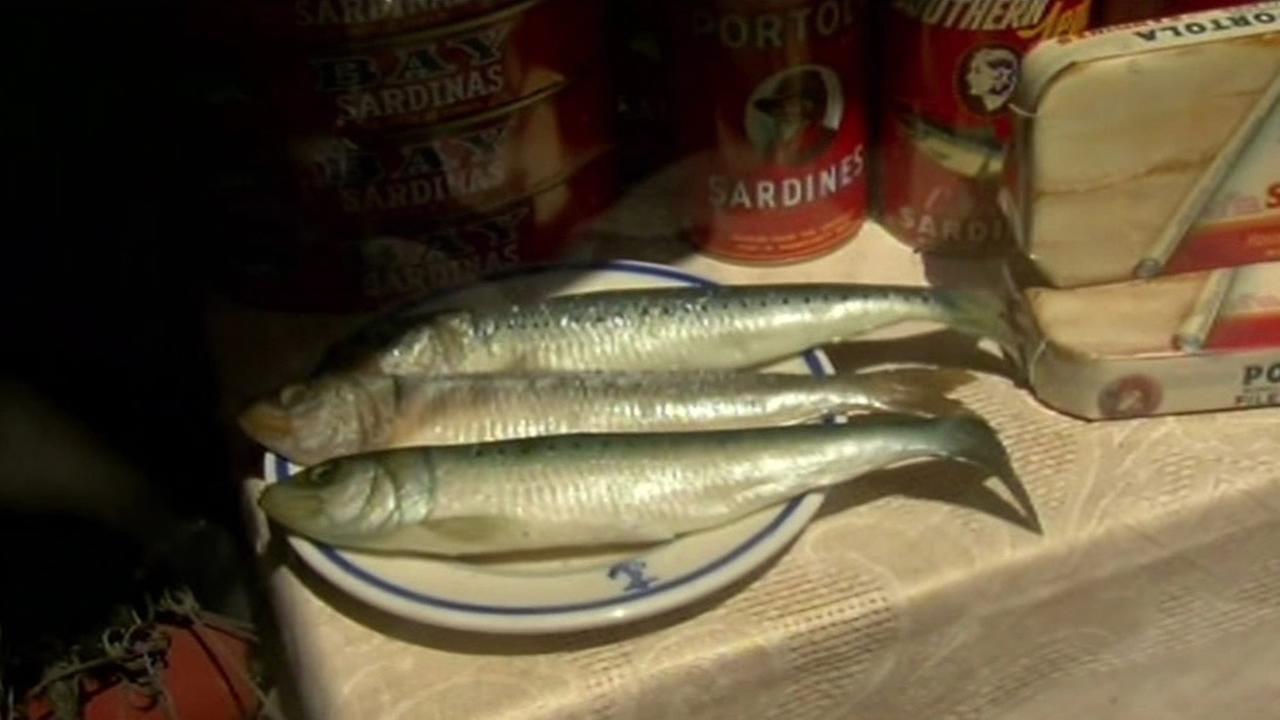 Sal Mineo casts his nets four to five hours out from Monterey’s Fisherman’s Wharf. But the commercial season has been declared over, two months early this season and next season as well. That goes against the 48-year-old sardine fisherman’s optimistic outlook. “Just because there’s isn’t any fish now, it doesn’t mean there isn’t going to be any fish you know a week or two weeks from now,” he said. Video, Read the rest here 07:19
Sal Mineo casts his nets four to five hours out from Monterey’s Fisherman’s Wharf. But the commercial season has been declared over, two months early this season and next season as well. That goes against the 48-year-old sardine fisherman’s optimistic outlook. “Just because there’s isn’t any fish now, it doesn’t mean there isn’t going to be any fish you know a week or two weeks from now,” he said. Video, Read the rest here 07:19
California salmon outlook is good for 2015, ominous in the long run
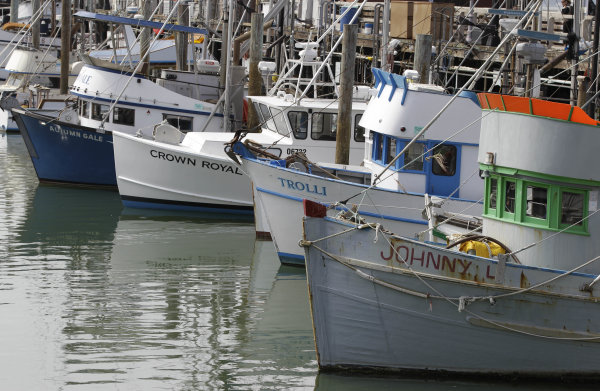 Reflecting optimism about this year’s abundance of chinook salmon, fishing industry regulators on Wednesday approved the longest commercial season in more than a decade. But the state’s record drought has darkened the long-term outlook for one of California’s most valuable fish. “I am feeling pretty good about this year,” said Pillar Point fisherman Don Marshall, who represents a group of roughly 75 small boat operators throughout California. “I think there are some fish around.” Read the rest here 19:38
Reflecting optimism about this year’s abundance of chinook salmon, fishing industry regulators on Wednesday approved the longest commercial season in more than a decade. But the state’s record drought has darkened the long-term outlook for one of California’s most valuable fish. “I am feeling pretty good about this year,” said Pillar Point fisherman Don Marshall, who represents a group of roughly 75 small boat operators throughout California. “I think there are some fish around.” Read the rest here 19:38
Lawsuit Filed to Save Four Southeast Fish From Extinction
 Center for Biological Diversity filed a lawsui against the U.S. Fish and Wildlife Service. “Human wellbeing is directly tied to the health of our waterways, so it’s scary”,,, The candy darter, ashy darter, longhead darter and frecklebelly madtom are at high risk of extinction due primarily to water pollution and dams. The four fish are found in Alabama, Georgia, Kentucky, Louisiana, Mississippi, Tennessee, Virginia and West Virginia. Read the rest here 18:29
Center for Biological Diversity filed a lawsui against the U.S. Fish and Wildlife Service. “Human wellbeing is directly tied to the health of our waterways, so it’s scary”,,, The candy darter, ashy darter, longhead darter and frecklebelly madtom are at high risk of extinction due primarily to water pollution and dams. The four fish are found in Alabama, Georgia, Kentucky, Louisiana, Mississippi, Tennessee, Virginia and West Virginia. Read the rest here 18:29


































